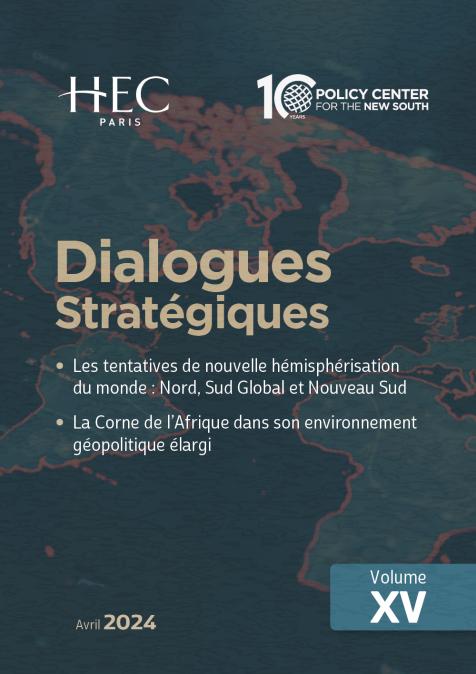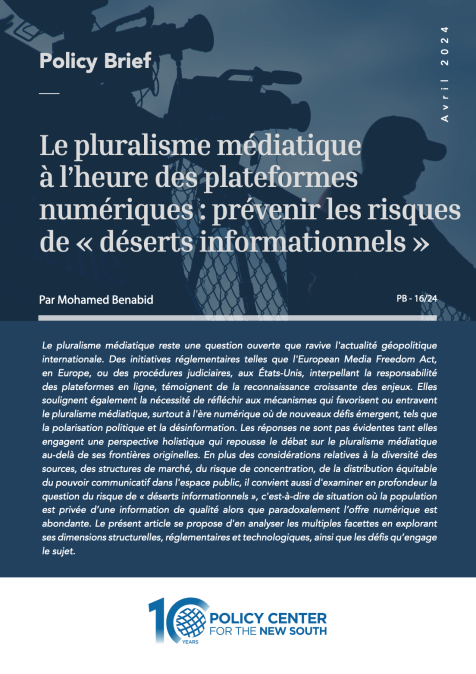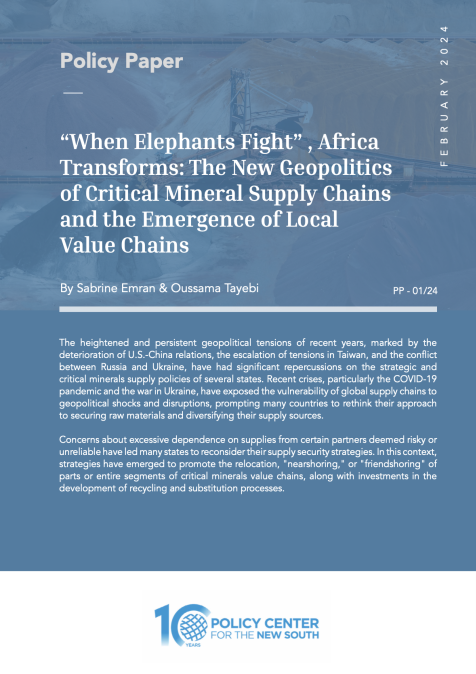Podcasts
Nouveau pacte européen sur l’immigration et l’asile: analyses et perspectives
15
January
2021
Related topics:
Iván Martín, économiste et Senior fellow au Policy Center for the New South expose le contenu et les principaux axes du nouveau pacte européen sur la l’immigration et l’asile. Adopté en septembre 2020, celui-ci promeut le renforcement des principes de responsabilité partagée et de solidarité entre les Etats membres de l’Union européenne. Toutefois, le pacte en question renforce aussi l’accent mis sur le contrôle des frontières. De nouvelles dispositions qui ne manqueront pas d’impacter les pays d’origine des migrants, comme le souligne Mr. Ivan Martin dans son intervention.









